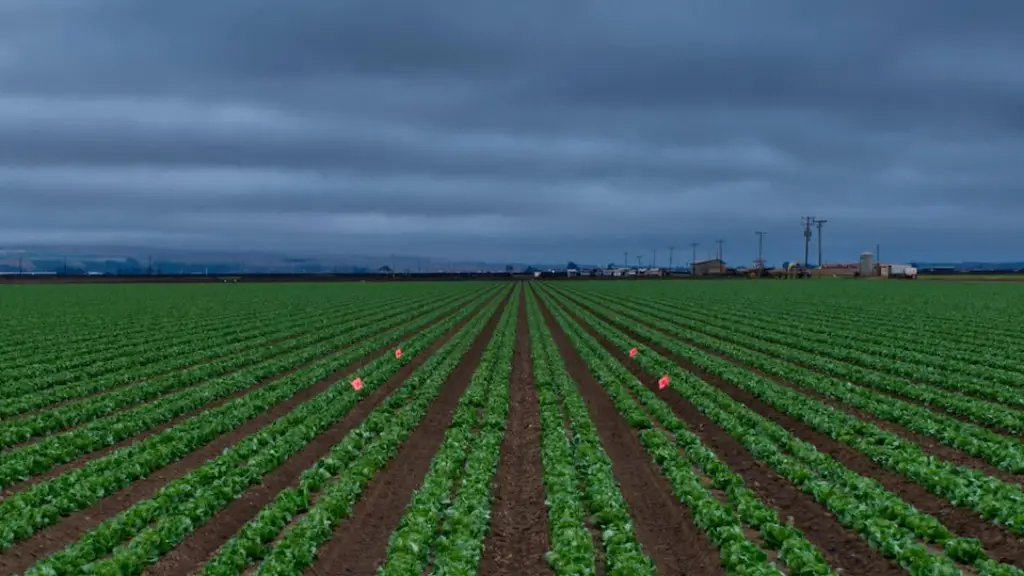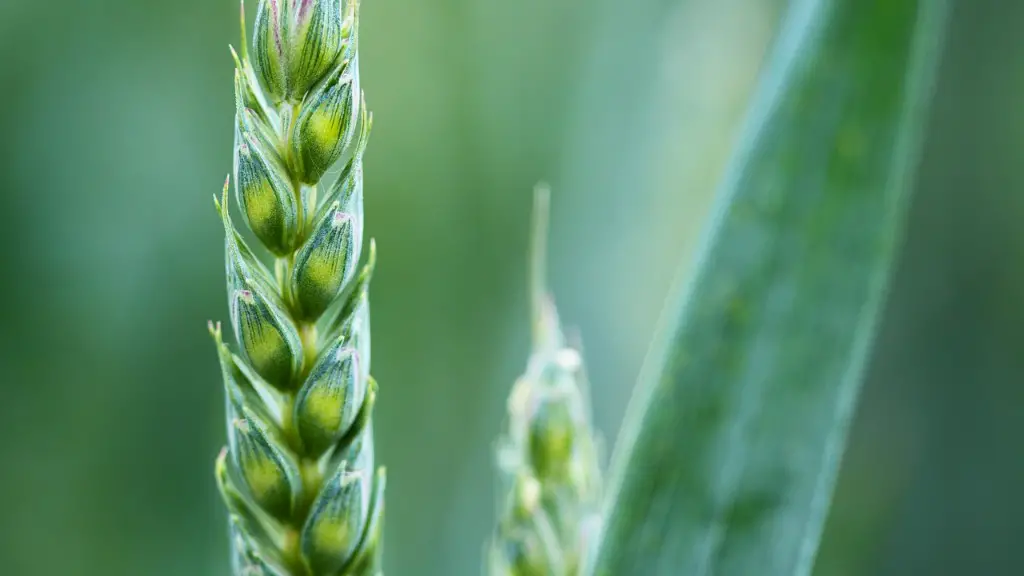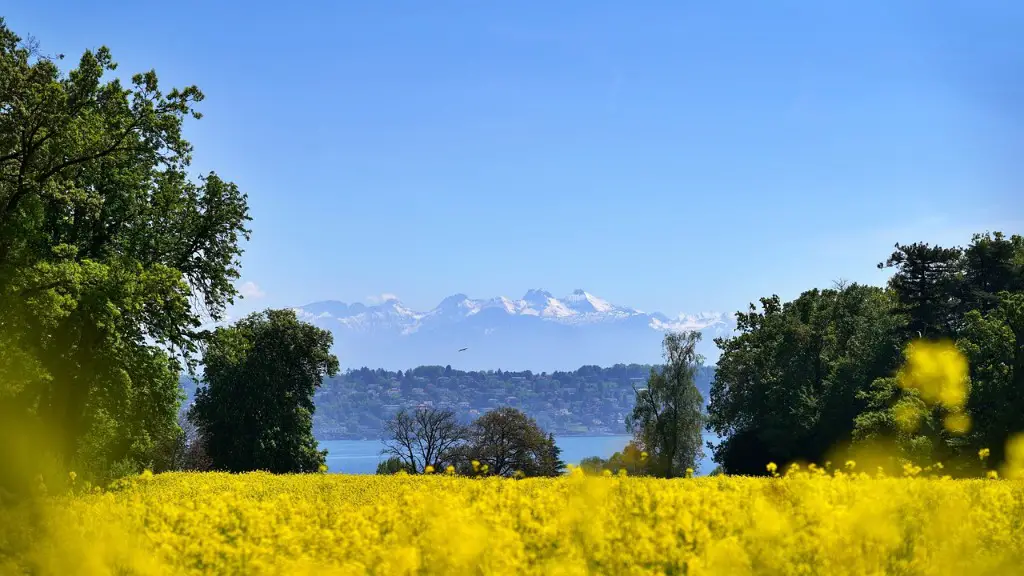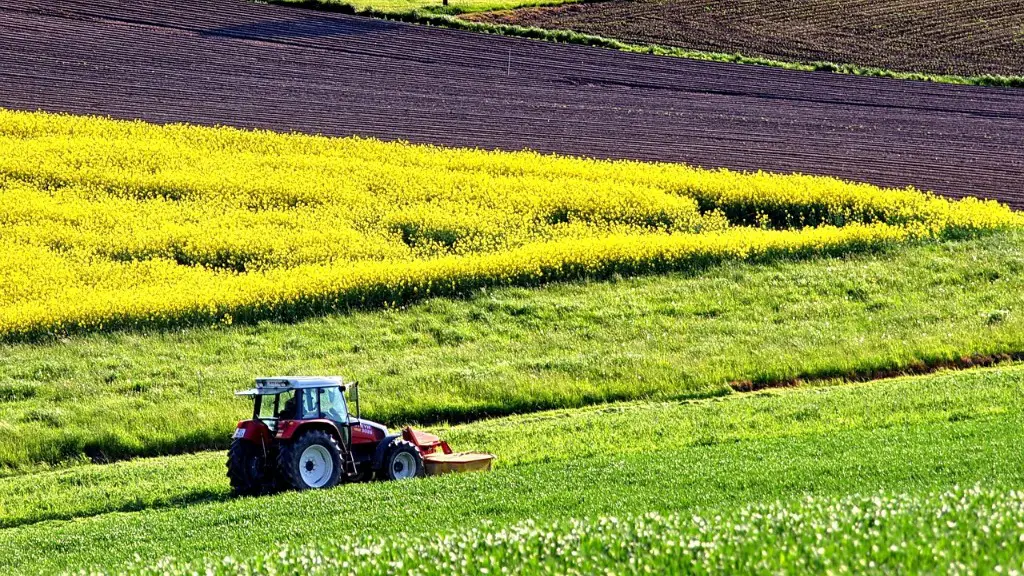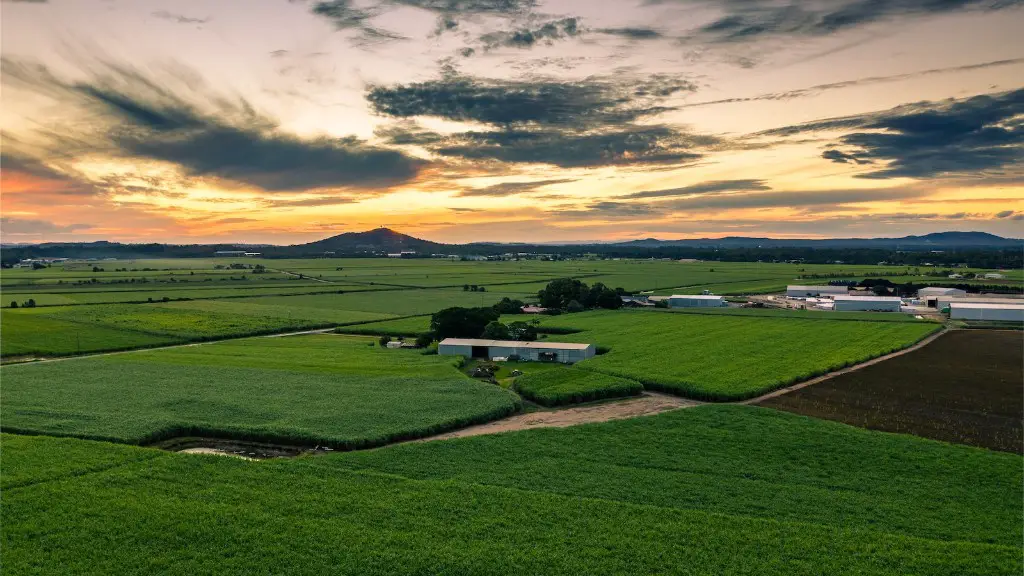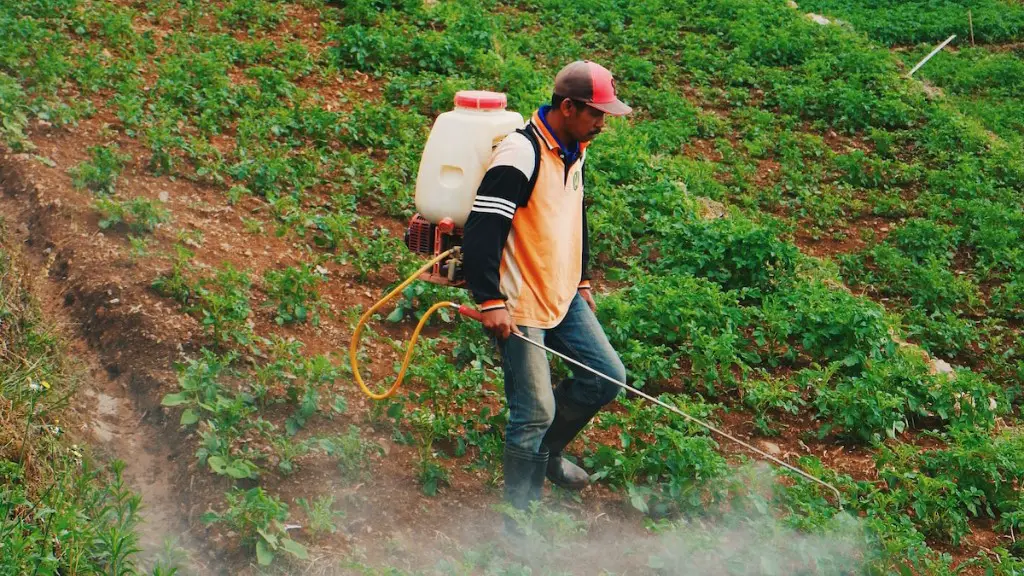Agriculture has had a profound impact on the environment. The way we farm has changed the landscape and the way we use natural resources. Agriculture has also contributed to climate change and the loss of biodiversity.
The Agricultural Revolution had a profound impact on the environment. The clearing of forests to make way for fields and pastures led to soil erosion and the loss of topsoil. The overgrazing of grasslands contributed to desertification. The use of pesticides and fertilizers harmed wildlife and polluted waterways.
What are 3 effects of agriculture on the environment?
While large-scale, conventional farming can yield high production levels, it also contributes to climate change, pollutes air and water, and depletes soil fertility. This system focuses on intensive single crop production, mechanization, and depends on fossil fuels, pesticides, antibiotics, and synthetic fertilizers.
New evidence has surfaced that ancient farming practices were responsible for a rise in the atmospheric concentrations of heat-trapping gases like carbon dioxide and methane. This rise has continued uninterrupted since then, in contrast to any other time in Earth’s geological history. The findings suggest that agricultural activities have been a key driver of climate change over the millennia.
How did the Agricultural Revolution affect the environment
The Agricultural Revolution was a time period when the way that crops were grown and animals were raised changed drastically. This impact the environment in a number of ways. Forests were cleared to make way for farmland, which destroyed habitats for many animals. This also decreased the overall biodiversity of the area. Additionally, the use of plows and other farming equipment released carbon dioxide into the atmosphere.
Livestock are a major source of greenhouse gas emissions, most notably methane. In addition, overgrazing is a major problem regarding environmental sustainability. In some places, stretches of forage land are consumed so extensively that grasses are unable to regenerate.
What is the main impact of agriculture?
Agriculture impacts society in many ways, including: supporting livelihoods through food, habitat, and jobs; providing raw materials for food and other products; and building strong economies through trade.
Agriculture is the main source of food and livelihood for billions of people around the world. It is also a major source of habitat for many plants and animals, and a major provider of jobs. Agriculture also provides raw materials for many food and non-food products, and is a major driver of international trade.
Agriculture, food, and related industries are a significant part of the US economy, contributing roughly $1264 trillion to US gross domestic product (GDP) in 2021. This is a 54-percent share, with the output of America’s farms contributing $1647 billion of this sum—about 07 percent of US GDP.
How does agriculture help the environment?
Climate change is expected to bring more extreme weather conditions, including more droughts and more erratic rainfall. This will put strain on our agricultural systems, which are already under pressure from other environmental problems such as soil degradation and water scarcity.
But there is hope. There are a number of agricultural practices that can improve the resilience of our soils, plants and animals to climate change. These practices, known as regenerative agriculture, include no-till cultivation, not burning stubbles, and planting cover crops.
By adopting these practices, we can help to ensure that our food production systems are able to withstand the challenges of climate change and continue to provide us with the nutritious food we need to stay healthy.
It is clear that the expansion of agriculture has had a profound and negative impact on the environment. In addition to the well-known effects on climate change, agriculture has also been a major driver of biodiversity loss. Habitats have been converted to farms and pastures, while pesticides and fertilizers have polluted the environment. Soils have also been degraded, leading to a loss of productivity. All of these impacts have serious consequences for the well-being of the planet and its inhabitants.
Are there any negative effects of agriculture
Dear
The government has implemented financial assistance programs that enable farmers to reduce their GHG emissions from agriculture. These programs will help farmers to invest in practices that will reduce emissions, while also increasing their profitability.
Although harvesting the crop represents a significant amount of nutrients, water, and energy being taken from the land, it is important to remember that this land is still home to many organisms and ecosystems. This is especially true of land used for industrial monoculture farms. Even though the land may be barren after the harvest, it is still important to respect and protect the organisms and ecosystems that call it home.
What are 3 reasons why agriculture is important?
#1 Agriculture is the main source of raw materials for many industries.
#2 Agriculture is important to international trade.
#3 Agriculture plays a big role in a nation’s revenue.
#4 Agriculture provides employment for many people.
#5 Agriculture is crucial to a country’s development.
#6 Agriculture can help heal the environment.
#7 Agriculture goes hand-in-hand with war.
#8 Agricultural research is important for improving crops and livestock.
#9 Agricultural extension is important for helping farmers adopt new technologies.
#10 Agriculture is an important part of the economy and culture in many countries.
Thank you for your question. Agriculture is a critical part of human history and has played a pivotal role in the development of cities and civilizations. Crops and animals were domesticated and farmed to meet the demands of a growing population, and this led to a population explosion – from just a few million people 10,000 years ago, to over seven billion today. Agriculture has truly changed the world, and continues to do so. Thank you for your interest in this topic.
How did agriculture change people’s lives
When early humans began farming, they were able to produce enough food that they no longer had to migrate to their food source. This meant they could build permanent structures, and develop villages, towns, and eventually even cities. Closely connected to the rise of settled societies was an increase in population.
The availability of food is one of the key factors in determine the size and density of a population. When food is more abundant, people are able to support denser populations. Agriculture is a key factor in this, as it produces enough food to allow people to pursue other interests beyond simply worrying about where their next meal will come from. This has led to the growth of small settlements into towns and cities.
What is the biggest problems in agriculture?
The above mentioned problems are some of the major problems faced by the farmers in India. These problems result in the poor quality of produce and lead to high wastage. As a result, the farmers are not able to get the proper price for their produce and are not able to make a living out of farming.
The problems with poultry farming stem beyond the farming process itself. Issues such as wastage and poor infrastructure can still hinder successful agriculture. Acquiring incubators to enhance poultry farming can help alleviate some of these issues. However, lack of information and poor research and record keeping can still pose serious problems. Financing can also be a challenge.
Conclusion
Agriculture has had a major impact on the environment. Agriculture has led to the deforestation of huge areas of land, the overgrazing of grasslands, and the pollution of air, water, and soil. Agriculture has also contributed to the extinction of many plant and animal species and the loss of biodiversity.
The way we grow and process food has changed dramatically over the years, and those changes have had a big impact on the environment. Agriculture is a major source of water pollution, and it’s also one of the leading causes of deforestation and habitat destruction. As the world’s population continues to grow, we need to find more sustainable ways to produce food.
